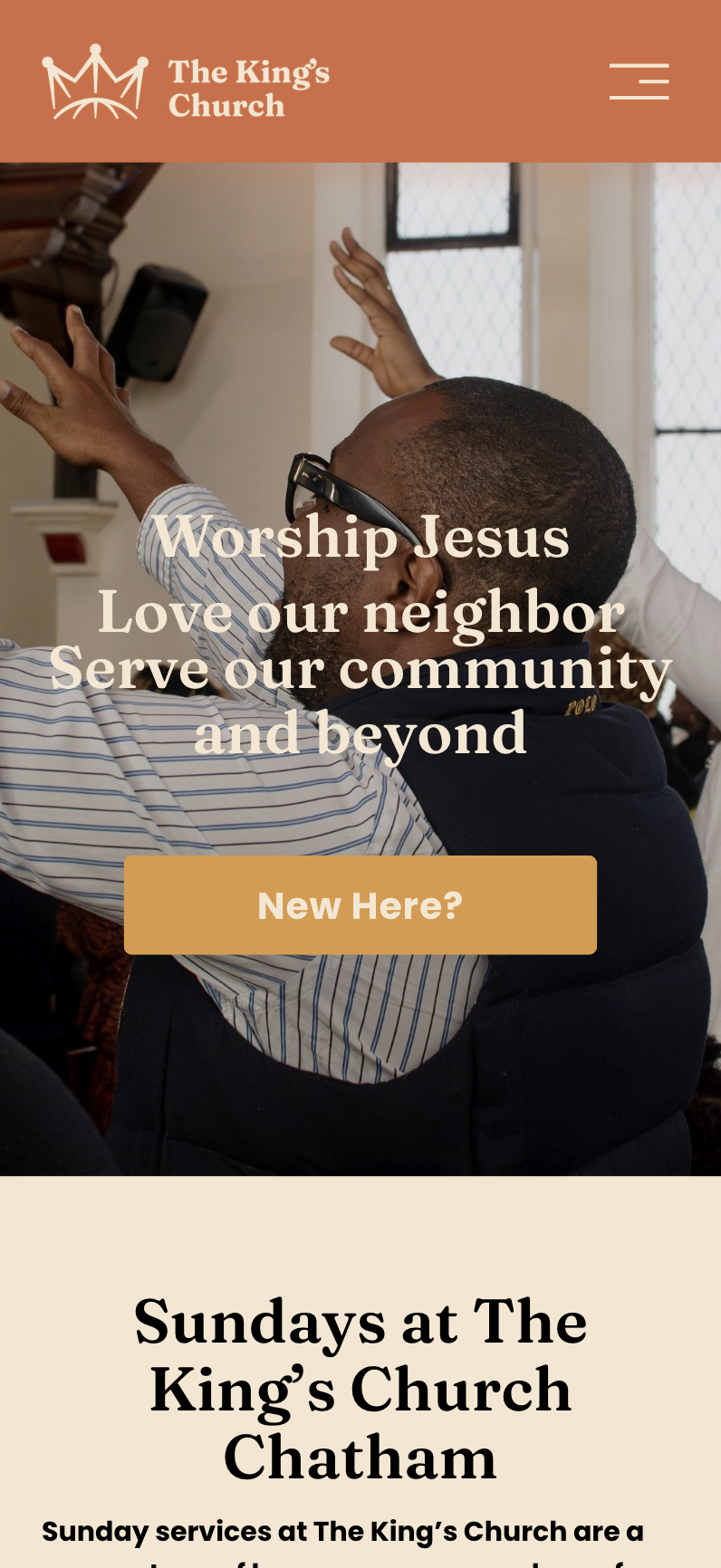How to Build A Local Church Website That Ranks Online
A website can be one of the most important ways your church welcomes new people. But too often, local church websites aren’t helping anyone find the church at all.
That’s where SEO comes in - short for Search Engine Optimisation. It’s what helps your website show up when someone searches for a church in your area. If your church doesn’t appear on the first page of results, or if your site doesn’t clearly tell people what they need to know, they may never make it through your doors.
In this guide, we’ll walk through some of the most common mistakes, simple SEO strategies, and practical tools to help your local church website serve your community better.
Need to take a step back before working on your website? Start here with our guide to strengthening church communication.
Where Local Church Websites Go Wrong
Before we talk solutions, let’s be honest about what holds many church websites back:
They’re not mobile-friendly – A huge number of people use their phones to browse. If your site doesn’t work well on mobile, they’ll probably leave quickly.
Key information is missing – It might sound simple, but many church websites don’t clearly show service times, location, or how to visit.
Outdated or cluttered content – Conflicting dates, old notices, and messy navigation can make a site feel abandoned or confusing.
No local focus – If your site doesn’t mention the town or area you're in, Google may not connect it to local searches.
Missing Google Business Profile – Without this, your church might not even show up when people search for “churches near me.”
These problems can quietly block visitors from ever reaching your doors.
What Is SEO and Why Does It Matter For Churches?
SEO (Search Engine Optimisation) simply means helping your website show up when people search for something online. For churches, this mostly means local SEO — being found by people in your area who are looking for a church.
If someone types “church in Huddersfield” into Google, your website should give the search engine clear signals that it’s a relevant answer.
Here’s some quick wins that make a difference:
Use town or neighbourhood names on your site (e.g. “Welcome to St Mark’s Church in Leighton Buzzard”).
Register your church on Google Business Profile, with correct address, service times, and photos.
Make sure your Name, Address and Phone Number (NAP) are the same everywhere — website, social media, Google, directories.
Write content people might search for, like “What to expect when visiting a church” or “Youth group in Chesterfield.”
SEO Checklist for Your Church Website
Here’s what to prioritise:
Your site works on phones and tablets
Service times and address are clearly visible
You mention your town or neighbourhood on key pages
There’s a “Plan Your Visit” section for newcomers
You’ve created a Google Business Profile
A Google Map is embedded on your “Visit Us” or contact page
Links to your social media are included
You add new content now and then (e.g. a short blog or news update)
You’ve added your church to relevant local directories (e.g. AChurchNearYou.com)
Images have descriptive alt text (for accessibility and SEO)
You have some recent Google Reviews from church members or visitors
You don’t need to get everything perfect at once, but even ticking off a few of these can make a big difference.
Small Local Signals Make a Big Difference
Search engines look for signs that your church is genuinely active and part of a real local community. A few simple things can help:
Embed a Google Map on your contact or visit page.
List your church in local directories, like AChurchNearYou.com or community websites.
Add your town name naturally in blog posts, sermons, or news updates.
Encourage a few genuine Google Reviews — they build trust and help others find you.
These aren’t just technical tricks — they help real people in your community find you more easily.
People in your area are already looking for a church. A clear, welcoming, and search-friendly website helps them find yours.
If you’re not sure where to start or need help reviewing your current site, we’d love to support you. Get in touch with us and we can support you.

